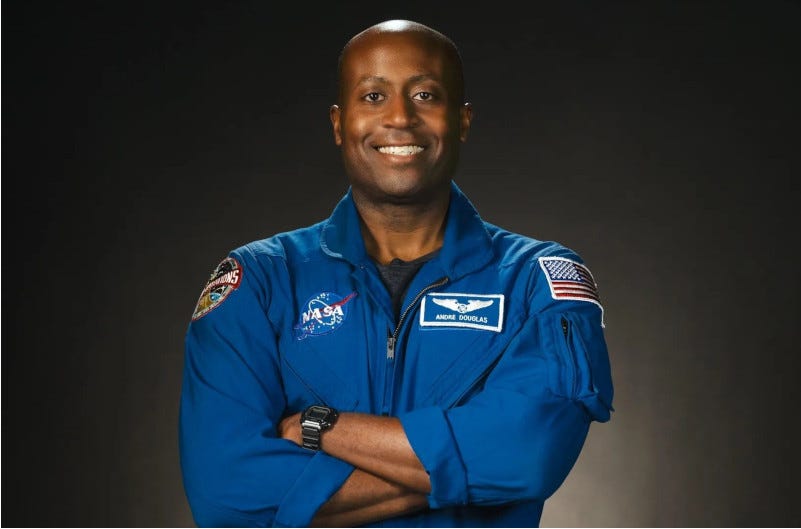Artemis II Backup Crew Member Announced
Andre Douglas Will Train Alongside Primary Crew
NASA has selected astronaut Andre Douglas as its backup crew member for the agency's Artemis II test flight, the first crewed mission under NASA's Artemis campaign. Douglas will train alongside NASA astronauts Reid Wiseman, Victor Glover, and Christina Koch, and Canadian Space Agency (CSA) astronaut Jeremy Hansen.
"Andre's educational background and exte…




